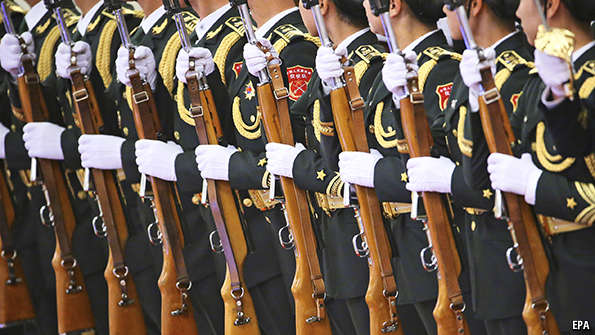
SO SECRETIVE is China’s army that it began admitting foreign journalists to its monthly—and highly uninformative—briefings only last year. But in the past few months extraordinary revelations have appeared in the Chinese media about corruption in the highest ranks of the People’s Liberation Army (PLA): a deputy chief of logistics built a mansion for himself modelled on the Forbidden City (among his treasures was a statue of Mao Zedong, in gold); the country’s most senior uniformed officer had a basement stacked high with cash; and in January it emerged that no fewer than 15 generals, including a former deputy chief of the nuclear arsenal, were being investigated for graft (see article). Never before in China’s history have so many high-ranking officers faced such charges at once.



